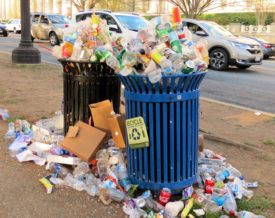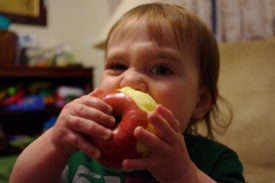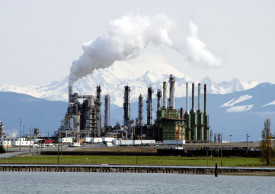A new study by researchers at a British Columbia cancer agency stands as a stark reminder that, when it comes to pollution, an ounce of pollution prevention is worth a pound of cure:
Researchers found people with the highest levels of a certain type of insecticide in their blood had 2.7 times the risk of developing non-Hodgkin lymphoma as those with the lowest amounts….
People with PCBs in their blood, meanwhile, had twice the risk of developing the disease as those with the lowest exposures. That’s about the same level of increased risk as having a family history of non-Hodgkin lymphoma.
The thing to remember is that these compounds were banned 30 years ago. But they’re still hanging around, tainting the soil and the food chain, and causing all sorts of problems.
For some kinds of pollution, you just can’t put the genie back in the bottle—meaning that it’s much better not to open the bottle in the first place.







